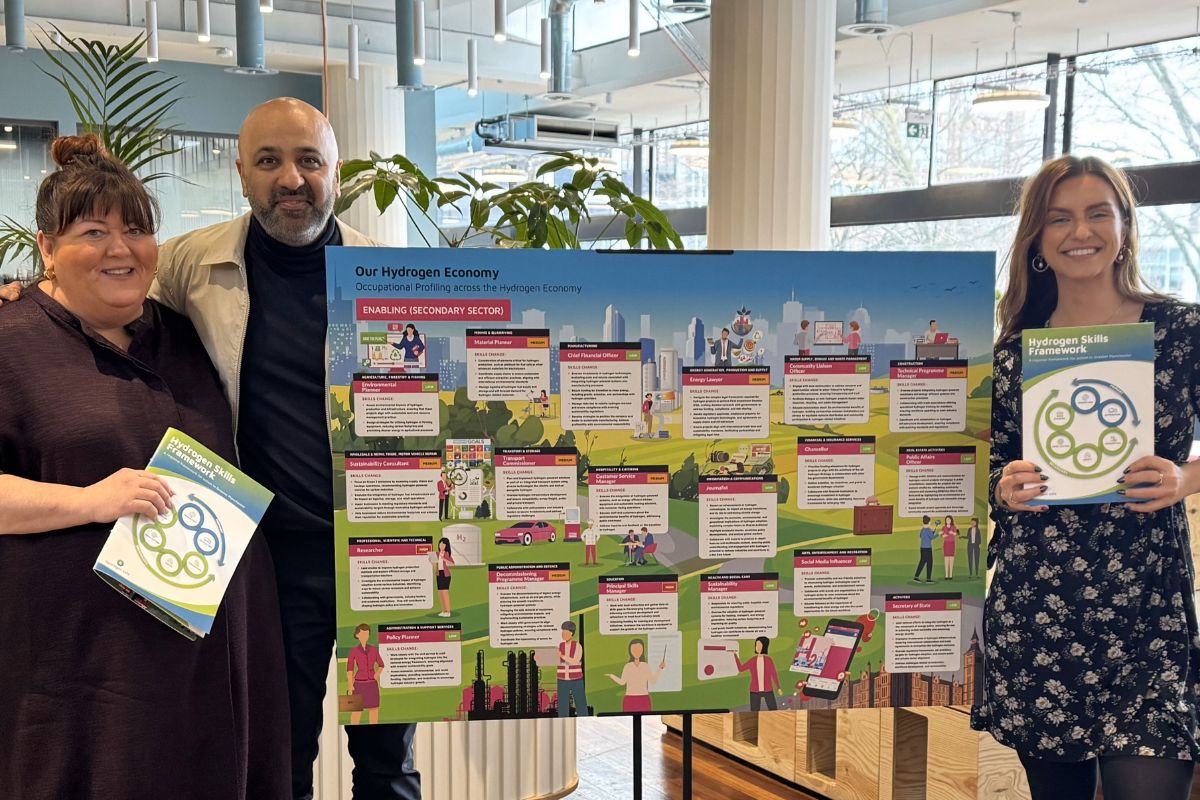Hydrogen Skills Framework for Greater Manchester Launches to Close Skills Gap

Today, (Wednesday 26 March) Hydrogen Safe, the specialist training provider headquartered in Greater Manchester, has launched a regional Hydrogen Skills Framework.
Designed to support the delivery of the UK government’s Hydrogen Strategy, it also complements the UK skills strategy launched by the Hydrogen Skills Alliance, which identified a need for strategic coordinated action, training, reskilling and mobility and to engage with local skills improvement plans and regional plans to fend off a widening skills gap.
A collaboratively designed roadmap, the Framework provides an analysis of the regions labour and skills market, focusing on the changes that will be needed as businesses prepare and the country moves towards achieving Net Zero.
Following a series of roundtable events, bringing together cross-sector policy experts, industry leaders and academics, a detailed analysis of occupational profiles across the entire hydrogen value chain was conducted.
This profile mapping, along with industry case studies and actionable insight, was then used to highlight pathways to close the skills gap through collaboration between industry, academia, and government.
The Framework can now be downloaded and used by those that have the ambition, drive and determination to make the North West an example of best practice as the region transitions to clean energy.
Green Energy Partnerships Director for Hydrogen Safe and lead on the project, Elizabeth Simon, comments:
“We recognised the need for greater regional supply chain cohesion and stronger links between educational institutions and local industry demands.
“Our framework provides a comprehensive evaluation of occupational profiles across the entire hydrogen value chain, including production, distribution, consumption, cross-cutting areas, safety, and enabling sectors.
“We have identified skills pathways for each occupational profile to bridge the gap through collaboration between industry, academia, and government. By showcasing local industry case studies, we highlight the region’s skills requirements for building a scalable, sustainable hydrogen economy.
“This framework not only supports Greater Manchester’s Net Zero ambitions but also gives the opportunity for other regions to adopt, setting the standard for the UK to establish itself as a global leader in the hydrogen economy.”
Director of the Manchester Fuel Cell Innovation Centre at Manchester Metropolitan University and Strategic Advisor for Hydrogen Safe, Amer Gaffar, comments:
“The Hydrogen Skills Framework is more than a regional initiative – it’s a blueprint for building a scalable, sustainable hydrogen economy that not only powers Greater Manchester’s Net Zero ambitions, but can also be used as a national template, setting the standard for success to become a global leader for the hydrogen economy.
“It prioritises public engagement, fostering future talent through schools, outreach, and hands-on demonstration projects. As such, we very much see it as phase one to a much wider piece of work.
“We want to encourage stakeholders throughout the region to use it and for others that may be interested in producing a Framework for their own region to come forward. Through our collaborative efforts, we can provide the infrastructure we need in the UK to achieve Net Zero.”
The Framework, which has the support of Net Zero North West and Greater Manchester Combined Authority, can be accessed here.
Additional contributors to the document include Arcadis, Deloitte, Addleshaw Goddard, HyNet, Carlton Power, IACS, SGN, Progressive Energy, Sustainable Ventures, National Gas, Manchester Metropolitan University, Agent Academy, Leeds College of Building, The University of Manchester, RHA, EEMU, CPH2, Oldham College, Aerospace Technology Institute, V360Energy and Watercycle Technologies.










Responses